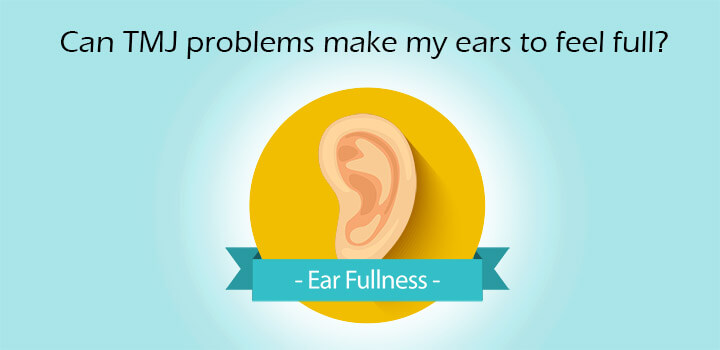
Can TMJ problems make my ears to feel full?
Yes. The TMJ or Temporo -Mandibular-Joint, or TMJ is positioned just in front of the ear and, in fact the back side of the TMJ socket is a thin membrane of bone sharing the front of the inner ear where the delicate bones and structures are located.
Stuffiness of the ear can come from several causes that are TMJ related. Tension in some of the jaw muscles can actually trigger tension in the inner ear muscle, the stapedious muscle. When it happens the eardrum tenses and can give a sense of diminished hearing, or stuffiness. Chronic clenching or grinding of the teeth can trigger these types of spasms.
Other jaw muscles can also spasm from chronic clenching, bruxing, disc clicking and cause the Eustachian tube to narrow or close. This affects inner ear pressure and can muffle hearing, much like when descending in an airplane.
A more common TMJ problem involves a “displaced disc” in the jaw joint. This is when your jaw “clicks”, “pops” or makes “grinding noise” as you move it. The cartilage disc in the TMJ helps cushion the joint and the ear socket from impact by the jaw bone, or condyle. Noise in the joint is diagnostic of the cartilage being “out of place”. This can cause the condyle to press directly into the ear bone when the teeth are biting down, such as with chewing, or when clenching or grinding at night. A dental nightguard doesn’t necessarily protect this impact either. Jamming of the jaw bone irritates the inner ear structures and can cause inflammation or tension in the delicate ear muscle and cause muffled hearing or inner ear pain and itching.
If you have been treated for a TMJ condition by occlusal adjustment or equilibration, the condyle has also lost support by the grinding down of the back teeth and, in some cases can shift backwards too far and impact the front of the ear as in a disc dislocation. Many times an equilibration, if done for a clicking joint, will cause the disc to dislocate (stop clicking) as it settles back towards the ear from the loss of tooth support from grinding the bite or equilibration. Both conditions can cause enough pressure to the front of the ear that hearing is affected.
If you have muffled hearing, ear pain, itching deep in the ear or hearing changes and your physician can’t find a cause; it is likely that a chronic TMJ condition exists. Treating the TMJ disorder using orthotic appliances to decompress the joint can restore ear function and improve hearing. Orthotics use an orthopedic medical approach to treating TMJ, much differently than a “bite adjustment” or bite equilibration” technique follows.
If you’re suffering from ear pain or muffled hearing and don’t have an inner ear infection, a screening exam can determine if you have a TMJ problem and what treatment approaches might be used to help you.
We’re based out of Boulder, Colorado, but because we specialize in TMJ treatment, we service all of Northern Colorado. In cities such as Fort Collins, Loveland, Windsor, Longmont and Denver. If you are experiencing TMJ symptoms, please give us a call at: (303) 955-4848 to schedule an appointment.



